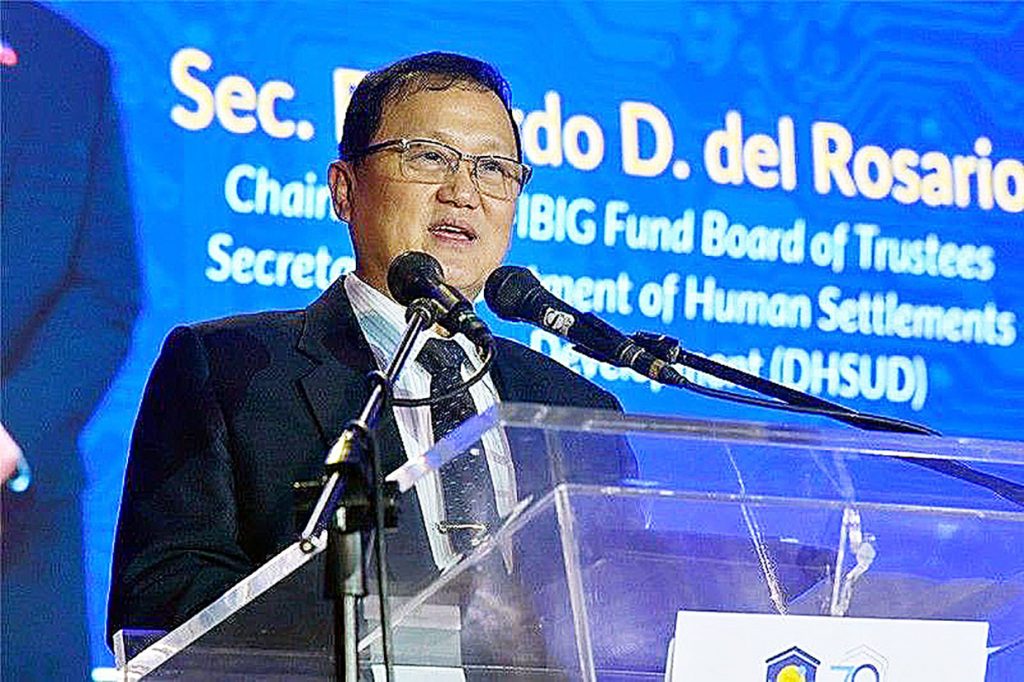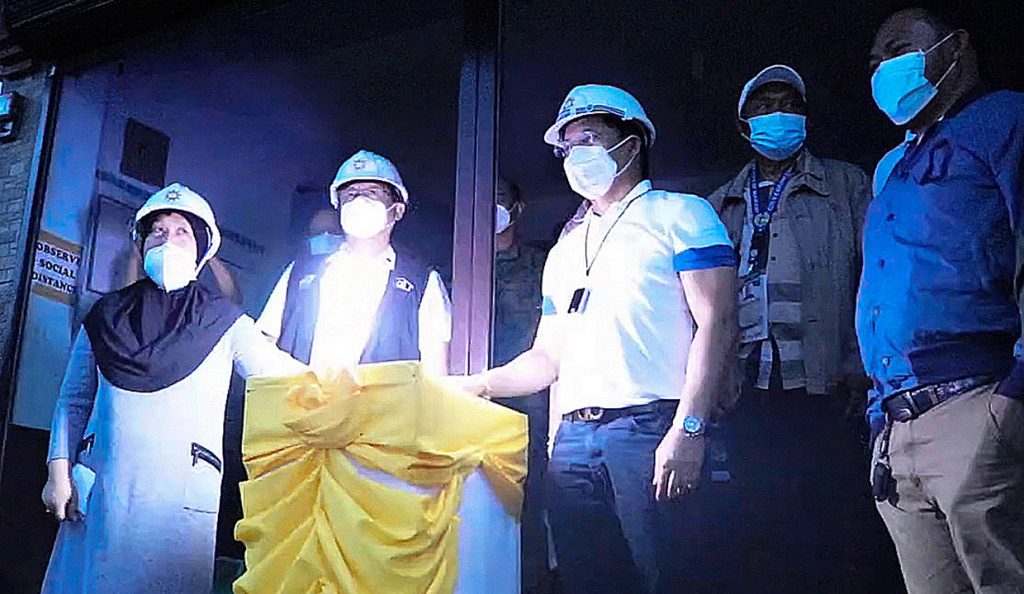When Property Report PH interviewed Housing Secretary Eduardo Del Rosario last week, he was on his way to Marawi to check the progress of the rehabilitation of the war-torn city, a task his agency is expected to satisfactorily complete despite its meager resources and an abundance of critics.
Del Rosario, a former Army general, went back to Marawi City just a few days after the bicameral Commission on Appointments (CA) finally confirmed his appointment as Secretary of the Department of Human Settlements and Urban Development (DHSUD).
“The focus of concern and questioning was mostly on the status of the rehabilitation, but I know what’s happening on the ground. There is progress because we’re following a methodology,” del Rosario said, referring to the grueling CA deliberations with members of Congress that took him 10 months to hurdle.
The Marawi conflict between ISIS-linked extremist groups and government forces lasted for five months in 2017 and left some 257 civilians and troops killed, and nearly 300,000 people displaced.

It also left the city in ruins, requiring at least P75 billion to repair and rehabilitate. The rehabilitation of the historic city is led by Task Force Bangon Marawi, which del Rosario chairs.
What the CA deliberations taught him, he said, was to be prepared and to really know his job, his objectives and “issues on the ground.”
The DHSUD was created by virtue of Republic Act 11201, which was signed by President Rodrigo Duterte on Feb. 14, 2019. But it became operational only in January when funds for the new department were included in the 2020 national budget.
BIRTH PAINS
“In effect, we’ve been in operation for 11 months, and we have, of course, birth pains. But I believe we’re in the right direction, a solid foundation,” he said.
He said the DHSUD does not have the level of manpower required to be fully functional, with only 30 percent of its complement filled up. About 700 officers are needed, including those who would occupy offices in 16 regional offices.
“The challenge right now is to get the best people in the market, tap their talents to achieve the vision of the youngest agency in the bureaucracy. To be structurally sound, we must have the right manpower,” he said.
MAIN TASK
The main task of the DHSUD is to reduce, if not wipe out the estimated 6.5-million housing backlog in the country. Del Rosario however said the backlog must be put in perspective, coming from the DHSUD’s mandate and capability as well as the needs of the market.

He said home ownership is an option, with a portion of the population preferring to just lease or rent. The backlog, he said, is composed of what he called the formal and informal sectors, the latter being the poor and are living in hazard and danger zones, estimated at around 1.4 million families.
He also cited a 2015 survey that showed 81 percent of Filipino families wished to have a house of their own.
“There are people who would not like to have a house of their own but instead prefer to just rent and there are people who would like to have — depending on their capacity — to like to have socialized, economic, low-cost, medium cost or high-end housing. That’s why we said home ownership is an option, and it is our responsibility that we provide the environment, especially for the poorest of the poor, so they can have their own houses that are decent and affordable,” he said.
He expressed confidence the department can provide some 900,000 to even one million housing units for the informal sector by 2022.
Based on a DHSUD study, del Rosario said if the agency is given P50 billion a year over a period of 20 year or less, the government can achieve or bridge the country’s housing needs, which increase annually.
The figure is just about a sixth or a fourth the annual budgets of other major departments.
This year, 30 percent of the agency’s budget was not released and diverted to government efforts to fight the pandemic. For 2021, the DHSUD was given just P4 billion by the Department of Budget and Management or .08 percent of the proposed P4.5 trillion General Appropriations Act for next year.
“We are sent to war, but without the ammunition to have a better performance while in combat,” del Rosario said.
The agency is given target accomplishment based on the Philippine Development Plan but the mandate is not commensurate to the budget being allocated by the national government for the housing sector, he said.
He said the agency is pushing for the passage of the proposed National Housing Development Finance Act in Congress that seeks to mandate P50 billion yearly allocation for the housing sector.
“If that (enactment of bill into law) happens, I think it will be a milestone for the housing department to really have that capacity to truly achieve its mandate,” he said.
PUMP PRIMER
While having a small budget, the DHSUD still has its policy tools as well as resources of its attached agencies and corporations, such as the Home Development Mutual Fund or Pag-IBIG Fund to help stimulate growth in the sector.
De Rosario said mobilizing the private sector, particularly developers, will help the economy recover from the pandemic-induced slump.
“Housing is a very strong pump primer because in constructing just one house, we have about 80 allied industries connected to a simple house being built, so this triggers economic activity. The economic value, the impact of this is immediate, insofar as the labor or workforce is concerned. It is an economic trigger in allied industries like the cement, steel, furniture, and so forth. It triggers 80 sectors so housing is truly an industry that can pump prime the economy,” he said.
He said the DHSUD continues to closely coordinate with the private sector on the matter, trying to address their needs, especially during the pandemic.
Del Rosario recalled that when the Inter-Agency Task Force on the Management of Emerging Infectious Diseases was ready to slowly open up the economy, he immediately organized meetings via video conference between agency officials, the IATF leadership, and major developers.
He said the DHSUD and developers were able to secure permits to resume construction work. “We really have to do that. In fact when we opened in June, in three months’ time, because of the cooperation in the industry, about 55,000 workers resumed their jobs and they started the construction of more than 400,000 units.”
He said the Pag-IBIG Fund also put up a stimulus package of P10 billion for developers that need assistance. This comes with a very low interest rate of three percent per annum to enable them to continue their construction projects especially those beset with liquidity problems.
The DHSUD, he said, would remain focused on providing assistance to the private sector, which contributes greatly to the housing sector.
“So this is something that we are putting great importance to — direct collaboration and engagement — because I feel, their support is indispensable in the housing sector,” del Rosario said.
In all, del Rosario said, he wants a healthy environment and a strong partnership with private developers to create a more vibrant housing industry and achieve the overall goal of solving the country’s housing crisis.
